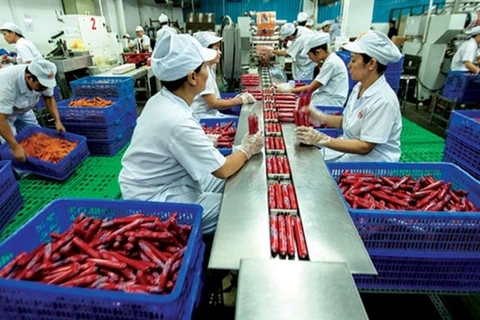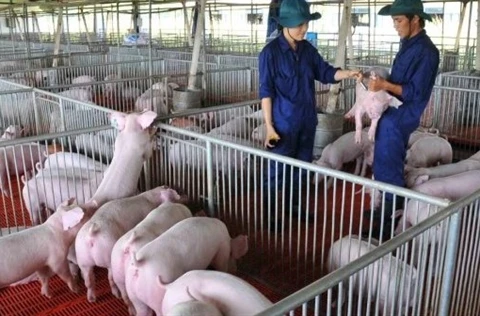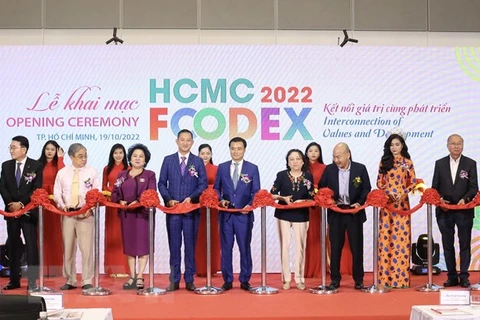HCM City (VNA) – Experts advised the Ho Chi Minh City’s food processing sector to diversify products, adopt automated technology, quality control system and improve workforce quality during a recent seminar on its development orientations till 2030 with a vision to 2050.
Speaking at the event, Asso. Prof Lai Quoc Dat from the Ho Chi Minh City University of Technology said the city needs to identify key and potential industrial product groups in need of more investment. The food processing industry, in particular, needs to further tap favourable conditions such as the city's strategic geographical location as an economic hub.
At present, the entire food processing industry in Ho Chi Minh City has over 2,800 production and trade units, including 2,314 food and 536 beverage processing facilities. Most of them are still small in scale, have limited digital technology and face challenges in developing markets, accessing consumers, and competing with foreign rivals.
Deputy Director of the municipal Department of Industry and Trade Nguyen Thi Kim Ngoc said food processing is a key industry in the city, accounting for 14-15% of its total industrial production value. It also contributes 14-15% of the total added value of the city's industrial sector.
In the first quarter, the industrial production index of the nationwide food processing industry still maintained a positive growth of 3.4% and the inventory index decreased by 10% year-on-year. Processed vegetables and fruits, milk and dairy products made positive contributions to the overall growth of the industry.
In Ho Chi Minh City alone, the index slid by 1.75% annually due to difficulties caused by weak consumption.
Opinions at the event suggested that the sector should promptly set up a shared database system, which will help to build an effective raw material zone, ensure traceability of origin and meet market demand.
In order to promote deeper connectivity and improve product quality, the business community needs the involvement of Ho Chi Minh City, cities and provinces, and relevant ministries to consider mechanisms for the expansion of raw material zone for the sector./.

























